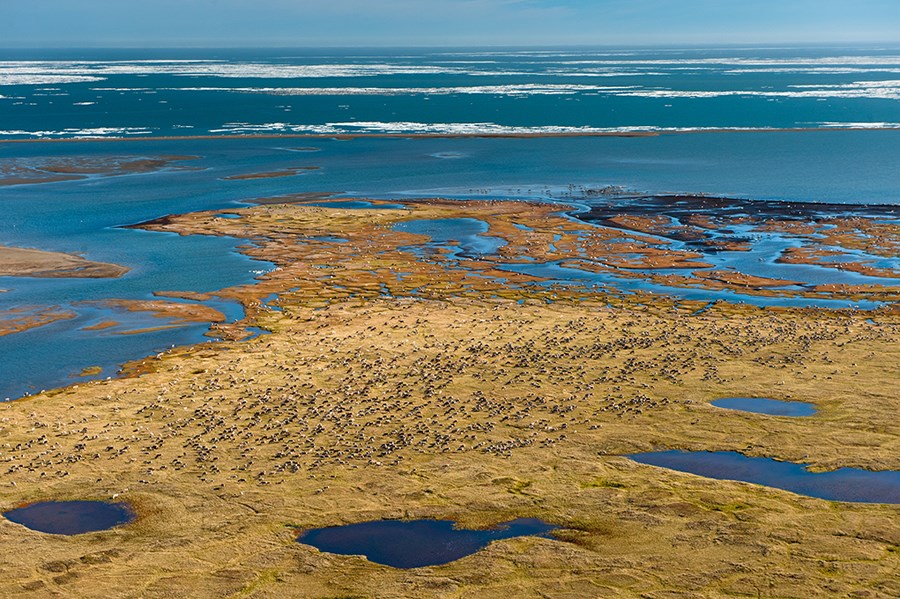Suicide warning signs and prevention | Line One
On this Line One, host Dr. Jillian Woodruff and her guest discuss signs and share resources for suicide prevention.
Alaskans in the Fulbright Arctic Initiative | Talk of Alaska
Three Alaska women have been selected as Fulbright Arctic Initiative scholars. We learn about their international research plans on this Talk of Alaska.
Unhoused Alaskans are 8 times more likely than housed people to get serious cold injuries
Recent data from Alaska’s Section of Epidemiology shows serious risks for people living outside.
Akiak woman tells her story of healing from alcohol addiction
Lena Foss, or Maamcuk, spoke to Akiak seventh grader Nadine Ayagalria about the ups and downs of her journey.
‘Cold Case,’ an Iñupiaq story of heartbreak and courage, sees Anchorage premiere
Cathy Tagnak Rexford's award-winning play, set in the fictional village of Gray Bay, tells a story all too real for many Alaska Natives.
In Akiak, grade schoolers report on why basketball is a way of life in the village
Fifth and sixth graders Yolanda Ramos, Amos Foss and Brian Hunter reported this story about a basketball tournament.
An interview with former host Dr. Thad Woodard | Line One
Dr. Anne Zink interviews longtime host of Line One: Your Health Connection Dr. Thad Woodard about memorable moments during his time as a host.
The past, present, and future of Line One and Alaskan health | Line One
Dr. Anne Zink joins the Line One host roster by "listening loudly" to current and former hosts, and to Alaskans about the history and future of the show.
Maternal health in rural Alaska | Line One
From 2012 to 2021, pregnancy-associated deaths in rural Alaska almost tripled, dramatically outpacing the increase seen in urban areas.
Alaska tribes get nearly $14M in federal grants to address domestic violence, sexual assault
The funds are part of more than $86 million in grants nationwide to American Indian and Alaska Native communities.
Alaska youth need expanded access to mental health support, advocates tell lawmakers
“We know that Alaska is No. 1 in all of the bad things," Sen. Löki Tobin said. "So I think we have a real opportunity to figure out some ways that we can intervene."
Mental Health Resource Fair – Sept. 21
Alaska Public Media is hosting its third annual Mental Health Resource Fair at the Spenard Community Recreation Center (2020 W 48th Ave. in Anchorage)...
Anchorage police hope focus on officers’ mental health and change in state law will encourage more to seek resources
Senate Bill 103 establishes clear confidentiality rules for police peer support sessions. It’s part of an emerging focus on mental health and wellness at Alaska public safety departments.
Governor vetoes bill requiring insurance to provide a year of birth control
Supporters of the bill said it would increase access to birth control, especially for rural Alaskans, and reduce reliance on abortions.
Dispelling myths around electroconvulsive therapy | Line One
Electroconvulsive Therapy, or ECT, is often portrayed in pop culture as a cruel or abusive treatment. However modern day ECT is far from the stereotypes.
Alaska judge strikes down requirement that only licensed physicians provide abortions
A judge agreed with Planned Parenthood that barring clinicians from providing services violates the state's constitution.
Microplastics in the Arctic | Line One
Why are microplastics so prevalent in the Arctic, and what is known about how they affect human health and development?
Arctic residents face high risk from toxic effects of plastics, report finds
The report is based on over 250 peer-reviewed studies and shows the Arctic environment and people are disproportionately impacted by microplastics, plastic chemicals, and contaminated sea life.
Alleged victims of former volunteer at Juneau’s Echo Ranch Bible Camp are suing
The people who say they were victims of Bradley Earl Reger are trying to hold the institutions where the abuse took place accountable.
As climate change alters berry production in Alaska, communities find ways to adapt
Researchers at UAF have been collecting berry data over the past two decades and communities are using that to help guide interventions.
























